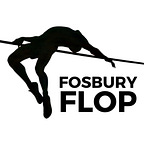You can enjoy this blog post by listening the podcast episode, or you can read it here, whichever is more convenient for you.
YouTube | Spotify | Apple Podcasts | iVoox | Google Podcasts | Amazon Music
In the tennis match for the Olympic bronze in Rio 2016, Kei Nishikori won the 1st set against Rafa Nadal and after losing the 2nd one in the tie-break he went to the bathroom to take a shower of 12’. The rules of tennis did not limit the time one could be in the toilet. It was legal but many considered it unsportsmanlike. What made Nishikori not mind breaking with ethics and morals? I guess it should be a matter of values, his desire to win, hyper-competitiveness. His beliefs affected his strategy and actions taken on his way to the Olympic podium. Nishikori shows us that your beliefs affect your learning, your actions, how you face challenging situations... and much more. Whatever you believe about something affects your reponse to it.
Carol Dweck has demonstrate it with stress. A stressful stimulus will not affect a person who sees it as a learning opportunity the same way as one who sees it as a threat. If you believe that stress has properties that can benefit, you will generate a positive adaptation to it —if the stressful event is not of a bigger magnitude. If you believe the opposite —that it is bad and debilitating—, your stress response will affect you negatively and so, your psychological and behavioral reaction, your state of health and performance. The same task, action or activity... with different beliefs, expectations... behind has different results.
In a world full of information and stimuli of all kinds, a belief —a mindset— is a guide to behavior and thinking that makes it easier for us. A value, a belief... it’s quite a big thing that encompasses many other things like the small actions we do every day. An action at work or on the basketball court is not an isolated event that happens just for the sake of it... it comes from far away —and from far above. Deciding whether to go shopping at the small neighborhood store or the large supermarket at low prices is not a coincidence. Playing a ball into the opponent’s body or into the free space in the tennis match is not a matter of chance. As Nishikori well knows. Often, what determines this is the network of values, beliefs, mindset... of the person carrying out the action.
And why am I telling you this story? Because often to change a specific action, we have to change the values. This is why James Clear says that there is no change in habits without a change in identity. Changing one’s beliefs can cause a chain of changes that may benefit —or also harm— the person.

What you believe affects what you perceive on the court. What we perceive in order to move in the field or in your life is influenced by the mindset. Your beliefs affect how you move, how you behave... in life and in sport. Mentality is one of the main limiting factors of performance. Many times, we have to leave technique and tactics aside and start there.
If something affects your behavior, if it limits what you can do... it is a constraint —which can be personal or from the environment in which you find yourself. Body dimensions, a little muscle overload and a person’s belief… are personal constraints. All of these affect your entire day-to-day life. The social norms of society, the climate of your country or the position of an opponent on the court… are constraints of the environment. They also limit the behavior of the person, but they are not determined by the individual itself. All these, and many more, interact and the person’s behavior emerges. But not all of them have the same degree of importance.
A muscule overload can be easily recovered. Your opponent’s position on the basketball court at any given moment in the game will affect one or two actions that will likely go unnoticed. Although, exceptionally, they can end up causing big changes, they usually don’t have a big impact on the game… neither on a life. They are fast-changing constraints acting on small timescales. The personal values, mindset, social norms of your country… do not change overnight, rather in years or decades. They have a big impact on your day-to-day and on the person you are. They reach every corner of your life. They are slow-changing constraints influencing long timescales.
The opponents, the ball, the player’s strength and speed levels influence the actions of the match as do —to a different extent— the values. But the opponent’s position or a muscule overload determines an action or a match, a value determines a life. Values —as shown in the top figure— create a macro sphere, they change slowly and encompass and affect goals, actions that last much less and form smaller, micro spheres. Another way to talk about them is as big or small stones in the path.
How we behave in each moment is determined, to a large extent, by what we believe. Your values (which last for decades) affect what motivates you, what goals you set, the strategies to achieve them, where you direct your attention to do so, the perception of opportunities for action, and the actions you take (which last milliseconds). Just as a heart cell is not isolated from the functioning of the heart, the organism in which it lives and the social context that surrounds the person; a small action in a competition is not isolated from the person’s beliefs, but it is very determined by these.
A person who believes that stress is dangerous and debilitating will live to protect and avoid it. A person who believes otherwise will seek out challenge and value failure. This will affect day-to-day behavior at work, with friends, playing sports, etc. On the other hand, a person with values with greater tolerance or predisposition to stress... will affect her in a completely different way. Beliefs —macro sphere— affect actions —micro sphere. Carol Dweck showed us how those people who had a mindset that saw stress as an opportunity for improvement affected them positively in the small actions and moments of their lives. She showed us that the mindset of your players affects their development.
Some NBA franchises had stopped watching scouting videos of the players they were interested in —they already knew the athlete well enough— and were asking about the behavior off the court. They were more interested in getting to know the person, his family, the style of life. When Robert Moreno was coaching AS Monaco, they signed Tchouaméni knowing that he came from a well-to-do family. Because when you sign up, you not only hire the services of a professional —micro sphere—, you also join a person —macro sphere. Luís Aragonés did not take the “Pepe Reina goalkeeper” to the national team, but the “Pepe Reina person, humorist...”. Personal aspects influence athlete’s performance, adaptation, behaviour… I suppose it is related to what Pep Marí says: “You have to sign people [not players].”
When I read this quote as a 16 year old I found it very cute... but I have to tell you that I wasn’t aware that I didn’t understand. A person could have certain values or be a certain way. It didn’t affect the qualities I saw on the grass or the parquet, I thought. As if we live in one way and then, when we enter the court, we transform and become a different being. Now that, when I find it appropriate, I correct the value —the “why”—, not the specific action —the “what”—, I think I have assimilated it much better.
I have doubts about whether —as the cliché says— one plays as one trains. Yes, I have less doubts that how we live —how one is— can explain much better how we play —or coach. Once I learned the lesson, I realized the power of influencing macro spheres —such as values or mentality— without forgetting the micro ones —specific actions during a game. Correcting the “why” will be much more expensive than the “what”, but it will also be more significant in their perfomance.
Natàlia Balagué and Maricarmen Almarcha explain how we assume in science that molecular changes are more relevant. So we do all research focused on omics and always look at micro spheres without paying attention to macro ones —such as city design, physical activity policies... The macro ones are more stable, they change more slowly and more expensively over time, but they have effects that last longer. The social context —macro sphere— constrains the functioning of organs, tissues, molecules —micro sphere... The same as in sport. We coaches turn on the megaphone and the speaker and spend the training correcting each action, instructing move by move... when maybe we should be focusing on the value behind, on the cause, not on the action; on the macro sphere that is affecting the micro... and stop yelling so much.
That’s why I like to start at the top, with the macro, with the “why”. Not to mention that I can also help the players in specific situations in match or training... but my instructions probably won’t be as powerful. It’s not black or white —either macro or micro, either values or actions—, it’s recognizing the strength of the macro spheres to help us with the micro ones. There are different times to address each sphere. I think with developing players, the priority should be the mentality, the beliefs.
If I think it is appropriate, I prefer that the instructions go to the value, not to the action. An instruction can be directed towards the fast-changing constraints—”technique” or a specific movement— or towards the slow-changing constraints —values, objectives, strategies... By focusing on the latter I can end up influencing the former. A change in a belief, a mindset... can impact a multitude of actions, without having to correct them one by one.
For the unmotivated player, change the “why”, the reason why he does things... Instead of betting on shouts and punishments. Don’t interfere with the action, the “bad” behavior. If the winger just dribbles and doesn’t pass to the teammate in the area... look above the action, look at the bigger spheres above. Build the value in him of cooperation. If your strategy is to yell the winger play after play, it will end up making it for you to shut up. When you don’t see him or aren’t there, he will do the same. If the player is afraid or has anxiety... change his expectations towards stressful situations. Teach the sailor that rough seas are part of his job, what Jose Mourinho defined as “a culture of being comfortable with the pressure of trying to be top of the league”. Try a little harder to convince them and change their beliefs.
This explains what many call the “competitive gene”, which you either have or you don’t. It is not a genetic phenomenon, simply, the desire to win, the hatred of failing, the goal of having a successful career... as a belief, as a way of being. They believe on it so much that it ends up constraining everything else. If the player doesn’t care about losing, because he’s not competitive or his motivation is internal —to beat himself— instead of external —to beat others—, you won’t do anything. Who doesn’t mind losing is Amarissa-Kiara Toth. She shows that she doesn’t care about being unsportsmanlike in order to win. In her tennis match, she doesn’t think twice and erases the mark of a dubious ball that the referee had to check. She was number 349 in the ranking and her values impacted her action at that game situation to beat the player number 45.
Coach, may your actions, corrections... be directed all above. To the values you believe in, to the mentality you want to develop. Reed Maltbie talks about developing warriors, not winners. Because all warriors are winners, but not all winners are warriors. I don’t agree with the language —we’re not going to war— but I love the reason. I would talk about pursuing our teams’ shared values of long-term improvement, not short-term individual goals. Not believing that a team is just bringing together players —who look in different directions— but creating a culture that makes them all row in the same direction.
The coach’s actions must be aimed at this: To the values, to the motivations... that the macro spheres are aligned. Sometimes “how intelligent you are!” can hurt. “You have decided very well and smart!” has a much more different and powerful effect. Praising the characteristic or the result has very different effects to praising the effort or the process to some behavior. You contribute to building two very different types of values: fixed-traits or effort. That the skills are given or that they are won with attitude and effort. Don’t praise the talent or intelligence. You encourage a more static mentality of traits or characteristics. Praise and reward the process done to the achieved outcome. Praise the process that kids engage in: their effort, their strategies, their focus, their perseverance, their improvement. This praise builds hardy and resilient values, mentalities... more adaptable mindsets.
The coach’s actions must be aimed at helping to emerge a culture that makes them move by their purpose, not the trophy at the end of the season, and make the actions emerge more easily. Something bigger that keeps alive even when the team loses… because motivation is internal. The spirit of overcoming, of improving... has more power than the likes on social media, the admiration or other extrinsic rewards. A culture that makes them think about growth, about growing up, about the process... not about specific goals... But… how easy it is to say.
The values, the mentality... don’t appear in the statistics at the end of the match and, sometimes, we don’t pay them the attention they deserve. I hope, that from now on, you will see the power they have. The process of change is slow, it costs a lot, but in the long run it is worth it... in sport and in life. They don’t make goals, but they help the team to win more games.
Martí Cañellas | Fosbury Flop
Fosbury Flop is for the people, by the people. If it brings you value and you want to support the project, you can help to make it possible recommending it to a friend or upgrading your subscription.











